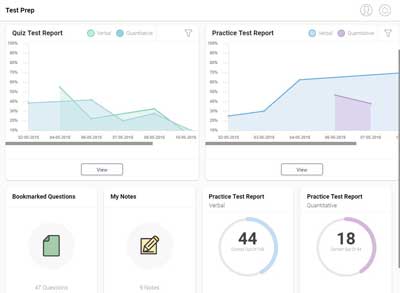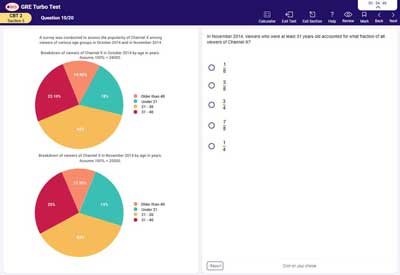
One of the most important steps in preparing for the GRE is planning your study schedule. Many a time, despite being fast learners, students fail to score high in the GRE only because of haphazard study methods. A structured prep plan helps you to systematically cover all the topics, manage time, and stay focused and motivated until your test day. At Dilip Oak’s Academy, along with GRE Coaching, we guide our enrolled students to study in a methodical manner through our exclusive GRE Study Plans.
Depending upon your GRE date (ETS registered/tentative), we provide you with a customized study plan for either 1 month, 1.5 months, 2 months, 2.5 months, 3 months, 3.5 months or 4 months.
Each study plan includes a step-by-step preparatory guide with day wise and week wise guidelines for Verbal Reasoning, Quantitative Reasoning, and Analytical Writing Sections of the GRE.
While each study plan varies according to the duration, it broadly includes:
- Vocabulary Learning and Practice
- Verbal Reasoning strategies and practice
- Quantitative Reasoning strategies and practice
- AWM essays brainstorming
- ETS Material Practice
All the study plans comprise rigorous learning and practice modules for each of the above sections. To help you keep a track of your preparation, we also send you daily and weekly goal-setting reminders.
Along with these, the study plans also include access to our exclusive online learning tools: Focused Practice, Test Prep and CBTs that help you study in a more organized manner and allow you to track your progress.
Focused Practice
- Reinforcement of the classroom coaching by helping you keep in sync with the concepts, tricks, and tips taught in the class
- 400+ questions for Verbal and Quantitative Reasoning
- Topic-wise questions for Quantitative and Verbal Reasoning
Test Prep
- Personalized Dashboard to track your progress
- Customized according to the question types and difficulty level
- Convenient timed and untimed modes for practice
- Instant Review and question summary
- In-depth explanatory answers to gauge where you stand
CBTs
- Actual GRE® test experience with full-length timed tests according to the ETS® pattern
- AW essay scores and personalized feedback by our experienced evaluators
- Detailed Analysis of your performance to help you gauge your strengths and weaknesses
- Explanatory Review to help you understand what went wrong and how to get it right the next time
Who can avail the study plans?
Only those students who have enrolled for GRE Coaching at Dilip Oak’s Academy can avail these study plans. To jumpstart your GRE prep and unlock our comprehensive study plans, register for our Online GRE Coaching.
You can then request for the suitable study plan by submitting us the details of your enrolled batch, Roll Number and GRE Test date on gre@dilipoakacademy.com.
The plan will be sent directly to your inbox on your registered email ID.
What are you waiting for? Register for our October 1 GRE batch here: https://www.dilipoakacademy.com/gre-online.html and along with study plans, avail 30% discount on the coaching fees!







